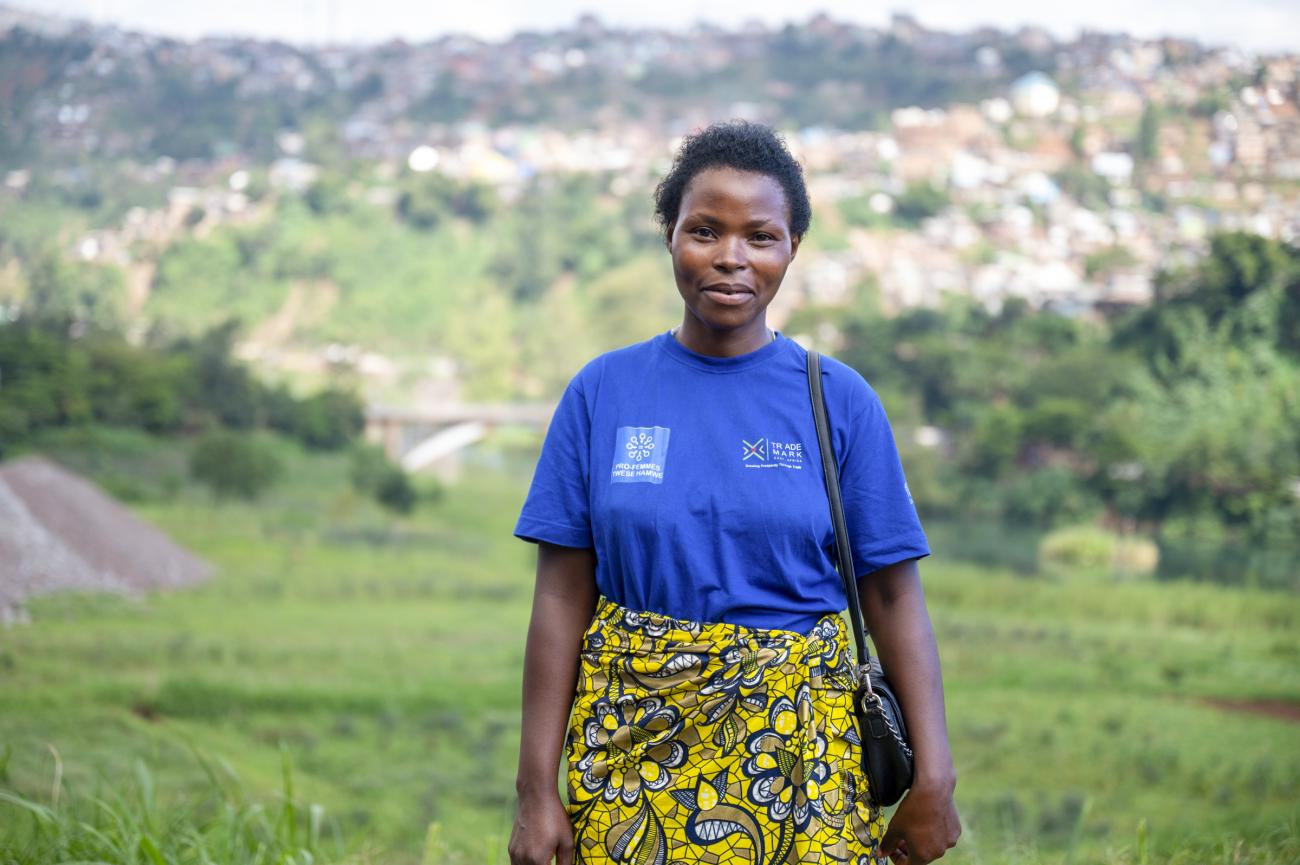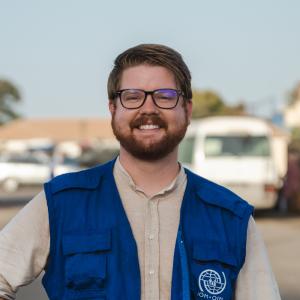Verena Mukagatare, a mother of five, wakes up early every morning to ensure she gets the best products at the market. She meets up with other members of her cooperative, where they purchase legumes and vegetables from wholesalers in Rwanda before heading to the border with the DRC where they will resell them.
If they are unable to find a truck to transport everything at once, these courageous ladies must carry the produce by themselves.
“At times, we carry products on our heads, which in that case means going back and forth at least three times a day,” Verena explains.
On any given day, cross-border traders like Verena make only 1,000 RFW in profit (USD 0.85) which is well under the global poverty line of $2.15 USD. Yet, trade at the border is the sole source of income for her family. To ensure no one is left behind, the UN through the joint efforts of the International Organization for Migration (IOM) and Trade Mark Africa (TMA) supports the strengthening of women’s trading cooperatives.
These women-led cooperatives are helping to promote inclusive, competitive, and sustainable economic growth in areas like Rusizi district, which generates work and promotes quality livelihoods for those living in border communities.
Under this project, selected cooperatives received grants as start-up capital to run smoothly.
“Our trade is more stable because of this collective support,” Verena explains.
Verena’s cooperative was one of the 13 to receive financial support and capacity-building trainings. In total, the project distributed $30,000 USD across women’s cooperatives containing a total of 950 members.
However, financial stability is only one of the challenges faced by small-scale cross-border traders.
Beatrice, who has been selling vegetables for over 15 years says, “There are times we come across dubious agents or traders, who violently attack us after we give them our products, rather than pay us.”
“They do this to scare us off. Ultimately, we choose our lives and health, which means sometimes returning home empty-handed.”
In order to improve the psychosocial well-being of female traders like Beatrice and help them develop coping mechanisms for dealing with trauma, group and individual counseling was organised through the Rwanda Organization of Trauma Counselors (ARCT-RUHUKA) in safe spaces where women could share their experiences, challenges, needs and come together in solidarity.
In order to improve the psychosocial well-being of female traders like Beatrice and help them develop coping mechanisms for dealing with trauma, group and individual counseling was organised through the Rwanda Organization of Trauma Counselors (ARCT-RUHUKA) in safe spaces where women could share their experiences, challenges, needs and come together in solidarity.
Moving forward
While the cooperatives have helped women strengthen their businesses and relationships in border communities, facilitating trade and movements across the border is also key for the local economy to thrive. Restrictions brought on by the global pandemic have led to Rwandan traders relying on brokers to sell their products in Congolese markets.
“This arrangement has come with challenges, for instance, agents often cheat us by lying that they made losses,” Verena shares. “Others take products on credit and don’t pay, which exposes us to losses and hurts our trade.”
To help improve mobility and promote cross-border trade, IOM and TMA are constructing and operationalising a one-stop border post (OSBP) at the Rusizi II/Ruzizi II border crossings between Rwanda and the DRC. Funded by the European Union, the OSBP is designed to reduce the number of stops made at the border by bringing border officers from both countries under one roof. Bringing border officers together and reducing the number of stops at the border, will make it easier for women living in border communities to cross and continue trading. It will also reduce their exposure to unscrupulous agents that may exploit them or physically abuse them.
Cross-border traders like Verena say the new border post is a welcome relief. “The one-stop border post that is starting to be constructed will help us overcome the border crossing challenges we have been facing.”
“Trade is our lifeline. Despite the challenges, many of us have not given up,” Verena proudly states. “We hope to work even harder going forward to reach a point where we can afford to send our children to better schools.”
The initiative of IOM and TMA greatly contributes to the achievement of the Sustainable Development Goals and Rwanda’s aspirations. It also responds to the UNSDCF on its pillar of economic transformation. The first outcome of the Cooperation Framework is “by 2024, people in Rwanda benefit from more inclusive, competitive, and sustainable economic growth that generates decent work and promotes quality livelihoods for all.”







